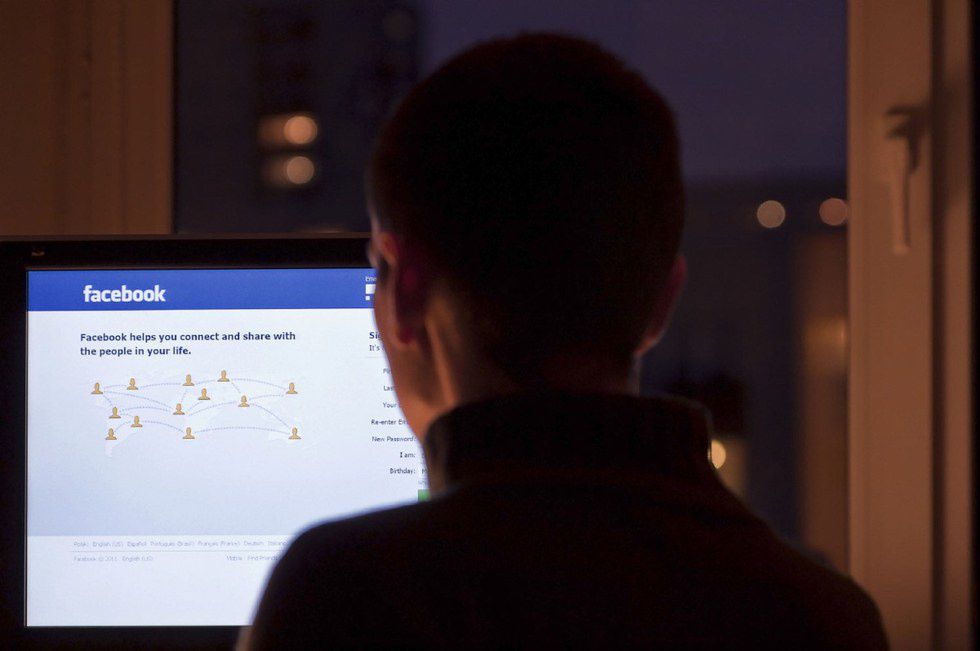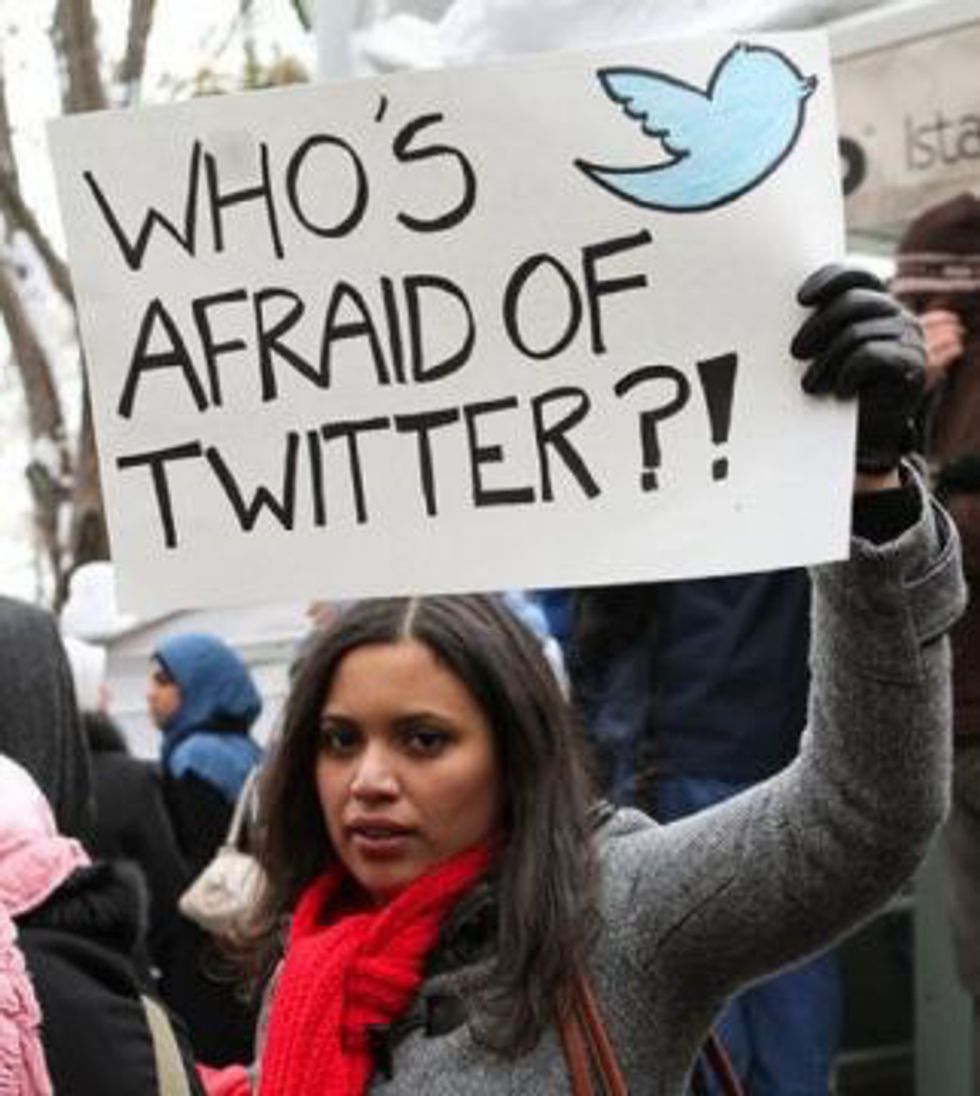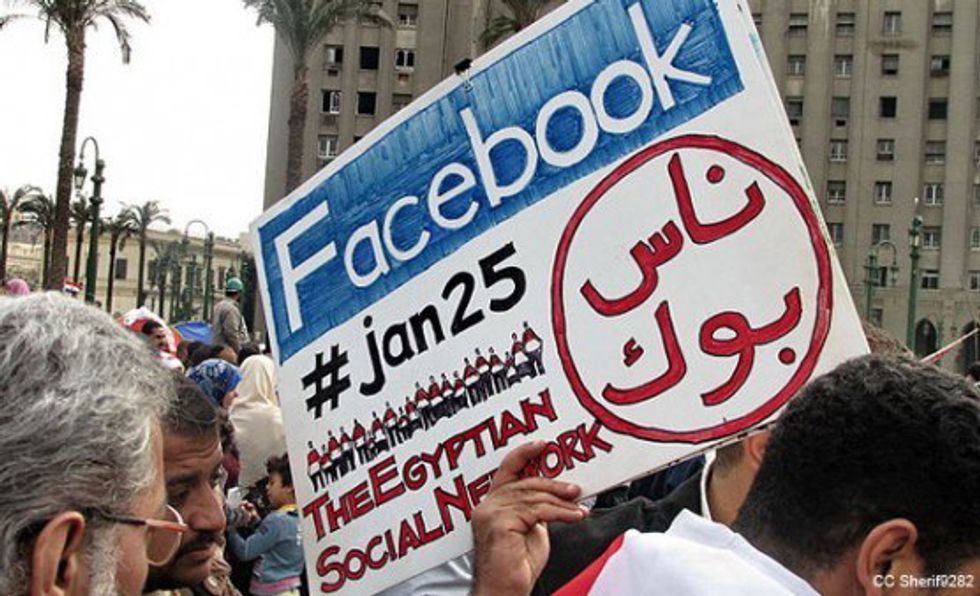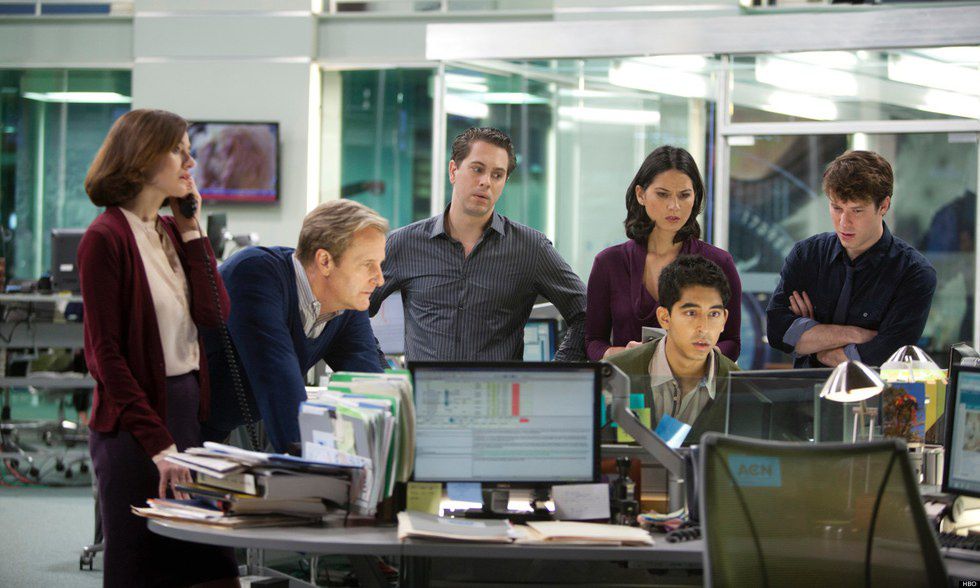It is April 15th, 2013 and two bombs explode in the streets of Boston while a world-renowned marathon takes place. Thousands of spectators are alarmed to an unexpected crisis and a tragic cessation of the event occurs before many even crossed the finish line. Social media sites immediately flood with tweets, statuses and posts of witnesses frantically attempting to alert others and express their astonishment even before reporters were able to write about the incident. It is June 13th, 2009 and protesters spark a revolution in Tehran. Angered by the outcome of the tenth Iranian presidential elections, millions of Iranians not only brought the protests to the streets but also spread the unrest to the world by making #Iranianelections the top trending hashtag for a week on Twitter, the fastest growing social media platform on the Internet. It is August 9th, 2014 and a young black man is brutally shot to death by a white police officer. Suspicions of a hate crime incite an uproar in the community of Ferguson and eventually take on the social media sphere where the shooting of Michael Brown serves as a topic for debate over the existence of racism and police brutality in modern America.
The rapid growth of social media and the accelerated rate at which information has been traveling, is an example of how quickly the world is becoming more and more globalized by means of instant news communication. All it takes is an Internet connection and anyone anywhere can become aware of events and interactions from all around the globe in a matter of seconds. Besides the speed through which information travels, social media also allows the audience to interact more with the news presented to them. It allows them more than just the facts to float around as different people can comment, research and discover things as knowledge is passed expressly. There is a bigger scope of facts, opinions and ideas within the social media realm where now more than ever citizen participation is highly incentivized and the concept of sharing news is not exclusive to journalists anymore. Online forums, discussion boards, Facebook and Tumblr posts, the comments section to any article published by a large news medium – they all allow opinions and ideas to be meshed with the facts being delivered and therefore increase the amount of thought and questions involved in an issue. As much criticism by part of the generation X as the constant need the generation Y has with being involved in social media may be, the benefits of being updated just by scrolling through your Twitter feed every hour or so outweighs the negative aspects of our addiction to being connected all the time.
There is no doubt that the existence of social media has had a drastic impact on the way journalism has developed within the last ten years. Everyday, more than a third of journalists spend at least 30 to 60 minutes checking social media websites, after 40% of them declared they find social media networks to be an imperative tool for the journalistic process. A recent report by the University of Indiana’s School of Journalism found that nearly 80% of journalists make use of social media for constant updates and information on recent events as well as to receive feedback from readers and share their work in a way that is accessible and easy to read. Not only are journalists involved in social media to present information, but also to receive other news in real-time, find additional information, check for updates, analyze their competition, find sources, interact with their audience, verify facts – they essentially have an online newsroom that connects them to anyone anywhere.
However, as beneficial as social media may be taking huge steps in aiding the spread of news and information, it has essentially tweaked the concept of “breaking news” into something far more faster and viral. Nonetheless, that does not necessarily harm journalism in the way some might think – if anything, journalists are the professionals who benefit the most from social media. Social media has not exactly killed the idea of breaking news but rather it became the best medium for news to travel through. Social media has become the hook of an article that hasn’t been written yet, in the sense where people will become aware of an issue through social media but only really educate themselves through journalistic pieces and reports. It is important to highlight that while social media has made it so much easier for people to come in contact with what's happening around the world, information only becomes journalism when its veracity is confirmed. The word "journalism" cannot exist without the truth, therefore a tweet from a random user on the Internet cannot be considered journalism on its own, it must first be vetted, or thoroughly investigating an issue in order to confirm its credibility.
A journalist’s primary role is to be updated on current events at all times and to report that information to the general public in a manner that is clear, concise, direct, and unbiased. The way news is gathered evolves everyday as society’s habits, ideals, opinions and interactions change, mostly because there is always a demand to make information as accessible as possible. With that, new journalism, or the journalism that has adapted and progressed in the new era of technology, has been growing exponentially due to the expansion of social media given the way in which information is structured. Take Twitter, for instance, with its 140 character limit to posts (or “tweets”), the use of hashtags to categorize said tweets, and the “retweet” button – all these features facilitate communication in a way no other medium has. It is simple, concise, highly flexible, engaging and, most importantly, fast. Not only does that create some sort of online newsroom for journalists, but it does in such a way that, by having so many sources of information, it better prepares them to tackle the issue than if they only had one source of information. Evidently there are people who spread facts and information that are not necessarily true, but that is why media sources still have reporters and persons who have to investigate an issue before any reports are written.
The underlying premise of social media accelerating the rate at which information is spread is that it can be distributed by anyone, anywhere at anytime, and with that there is no more distinction between who gets access to information first and then reports it. The physical notion of newspapers and magazines is slowly dwindling as the majority of the population that has access to constant information and news possesses some form of technology that enables content to be viewed electronically. Given the scope of the change in the way news is delivered today, newspapers had no other choice but to adapt to social media and Internet norms. Traditional media ignored the Internet for too long, and by the time they realized they were suffering financially from it, it was almost too late. However, as much of an audience as television and electronic media sources have been gaining, newspapers still take on the responsibility of being the most reliable, accurate and in-depth form of journalism.
As much as the line between citizens and journalists has not been “blurred” per se, there have definitely been changes to the way people view journalism given the effects of social media. What people fail to realize is that social media isn’t the first medium to allow everyone to write something down and call it journalism - 150 years ago the printing press did the same thing and yet journalism thrived even though anyone could print anything and label it as ‘news’. It is important to remember that even though there may be people out there with smartphones registering events such as the bombings in Boston or the protests in Ferguson and Tehran, authority still holds more power than authenticity. The word of a journalist is far more valuable than the tweet of the man who “allegedly saw someone with a backpack walk close to the finish line before the bombs went off”. Surely that man might have valid information, but it is better to wait for a journalist to gather all the information, vet it, write an article and then share that article with your contacts on social media before retweeting the allegations made by the man with the smartphone and no more information aside from what he saw. It is crucial to understand how to filter out false news, or how to research about a given topic and rely on verified news sources, and how to pay attention to the real facts and not allow those to get lost amidst the noise.
A crucial factor that comes into question when considering the integrity of journalism towards social media reporting is that journalists still maintain their ethical behavior when it comes to delivering news. Surely it is easier to get all your news from the Facebook posts from friends and from the trending hashtags on Twitter, but there must be a constant reminder that news originating from social media platforms has little to no filter. People, especially those on the Internet, are keener to saying whatever they want, therefore making it so that the information they are passing on is very seldom unbiased. As much as journalists may rely on the Internet for data, they still don’t fully trust it as a means to gather impersonal and objective information. The whole notion of the “newsroom culture” supports the integrity of journalists and reporters in a world dominated by the Internet craze and the sensationalism of social media. With that, journalists remain true to the impartial and trustworthy notion of delivering news and allowing their readers to think critically and form their own opinions.

























